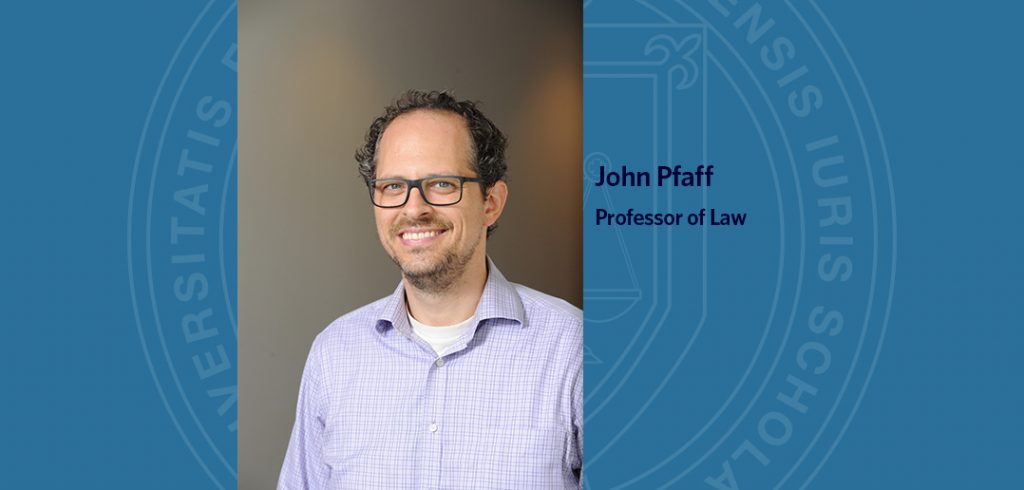Fordham Law Professor John Pfaff was quoted in a FactCheck.org article, written by Robert Farley and Lori Robertson, about President Donald Trump making misleading or false claims while explaining the reason for his decision to grant clemency to all of the more than 1,500 people charged in connection with the Jan. 6, 2021, Capitol riot.
According to the Justice Department, people convicted of murder in 2018 were sentenced to an average of about 50 years in state prisons.
In terms of time served, on average, people convicted of murder had spent about 18 years in prison before they were released in 2018, also according to Department of Justice data. That year, a little less than 6% of people convicted of murder served two or fewer years in prison before they were released (less than 2% served less than six months in prison). But those statistics come with some caveats.
The figures include inmates who died in prison. Specifically, 9% of those who served less than a year had died in prison. Moreover, while the statistics include prison time served, they do not include the time spent in jail awaiting trial.
“My guess is most of those who serve very short sentences in prison had already served a large amount of time in jail prior to their conviction and got credit for that,” John Pfaff, a professor at Fordham Law School and an expert in sentencing law, told us via email. In other words, he said, “if the trial takes 8 years, and the person gets 10, they may be released after two years in prison, on the grounds that they served the first 8 during their pre-trial lockup in jail.”
…
In Pennsylvania, the minimum sentence for first- and second-degree murder is life in prison. State law sets no statutory minimum prison sentence for third-degree murder, saying only that it cannot be more than 40 years. Third-degree murder is defined as: “All other kinds of murder” that aren’t first or second degree and amounts to “a killing committed with malice aforethought but without the specific intent to kill,” according to the Pennsylvania law firm Latoison Law.
“So Trump’s claim of no-time is conceptually true [in cases of third degree murder in Pennsylvania], but the guideline minimum is 6 years, which means no parole until that 6-yr mark is hit (and no guarantee at that),” Pfaff said.
A searchable online tool provided by the Pennsylvania Commission on Sentencing suggests that just two people convicted of third-degree murder between 2015 and 2018 received a sentence of probation, less than 1% of the cases.
In other words, Pfaff said, it is “vanishingly rare.”
Read “Trump Justifies J6 Pardons With Misinformation” on FactCheck.org.

